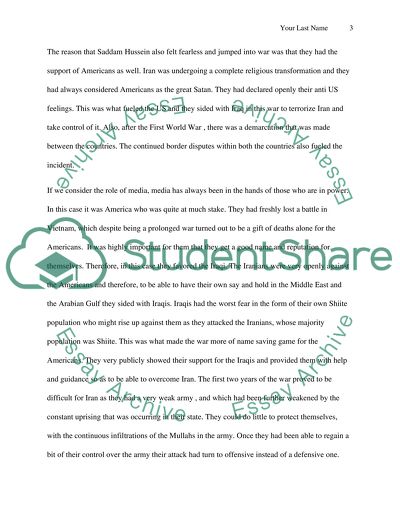Cite this document
(“War and the media (focusing on the First Gulf War) Essay”, n.d.)
Retrieved from https://studentshare.org/history/1453211-war-and-the-media-focusing-on-the-first-gulf-war
Retrieved from https://studentshare.org/history/1453211-war-and-the-media-focusing-on-the-first-gulf-war
(War and the Media (focusing on the First Gulf War) Essay)
https://studentshare.org/history/1453211-war-and-the-media-focusing-on-the-first-gulf-war.
https://studentshare.org/history/1453211-war-and-the-media-focusing-on-the-first-gulf-war.
“War and the Media (focusing on the First Gulf War) Essay”, n.d. https://studentshare.org/history/1453211-war-and-the-media-focusing-on-the-first-gulf-war.


